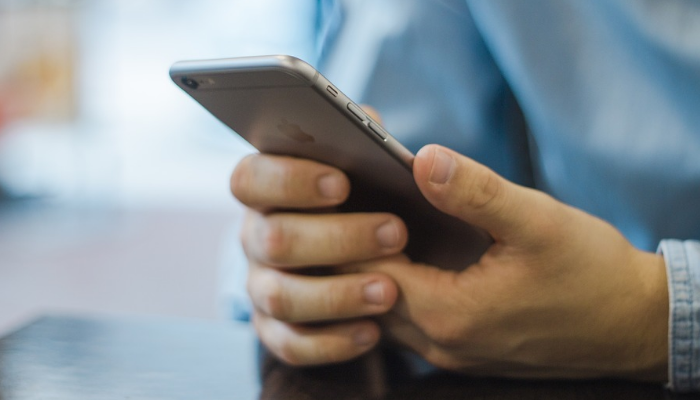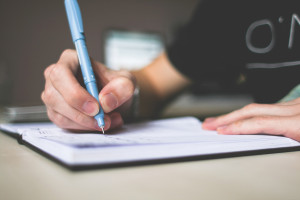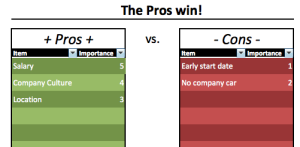There are plenty of decisions that go into a job interview. Choosing between a black or blue suit is all based on your preference. And you can go countless different directions to answer the interview questions.
However, there is one part of the interview process with a definite conclusion: You must send a an interview thank you note!
Though so many applicants skip this final step and lose job opportunities because of it. For example, a CareerBuilder study found that 57% of candidates don’t send thank you notes and 33% of hiring managers think less of applicants for it. You can’t dismiss that.
If you don’t write one, recruiters and hiring managers will often forget you among the many faces they’ve seen and names they’ve heard all day. But if you do write a thank you note, this gets their attention back on you, which is exactly your goal.
The second reason this thank you note is so important is that it adds one last compliment to the notion that you’re a polite and thoughtful candidate. Recruiters have a tough time deciding between applicants. So when you go the extra step to appreciate them, you make it easier for them to extend the offer to you because they like you.
Now you know you need to write one. But do you know what to write?
To seal the deal on your job search, learn what to do and what not to do in your post-interview thank you note.
Guidelines For The Interview Thank You Note
Include the specific role you’re applying for.
If you were the only applicant they saw all month, then you could be fine without mentioning the role and company you’re applying for. But you don’t know how many interviews this company has done and for what positions.
To be stay safe and show that you’re intentional, include both the position and the employer name in your email. The reader will appreciate it and review your email with a clearer idea of who you are. The example email in the next section does this well.
Remain professional.
Before the interview, it’s easy to remain professional because you don’t know the other person. After the interview, especially if you two had a great conversation, you can be tempted to email this person like your friend. That’s a bad idea.
Stay professional during the job search until you’ve signed a job offer. So address the interviewer by name and end the note with a professional salutation such as “thank you” or “best”. Then you’ll remain respectful.
Mention a highlight from the interview.
After thanking the interviewer for their time, write a personal highlight you took away from the interview. Usually this comes from what you learned about the job, what the interviewer said, or how they answered one of your questions.
In my opinion, mentioning a highlight from the interview is the most underrated aspect of this piece. Doing this shows your attention to detail. And it also refreshes the recruiter’s mind about who you exactly are and what you two talked about. Check out the sample email in the next section for an example.
Show your excitement.
Employers have concerns during the hiring process just as much as you. They’re worried about offering someone who isn’t excited to work for them. And they’re worried about bringing someone on their team that quits in a few months.
You can ease their worries by showing your excitement about the position. I like to express this in the note by clearly stating, “I’m excited about…”. And if you have to fake excitement, that’s a sign the job isn’t for you and you’ll only be unhappy at work if you take it.
Don’t send it too late.
I’ve seen advice on the Internet that suggests you wait up to a week to send the thank you note. And that’s terrible in my opinion. Because the employer could very well have already offered someone a job or rejected applicants by then. Sending it late also could send the wrong message that the company isn’t a top priority to you.
Instead, keep your positive momentum from the interview going forward by sending a punctual message any time from two hours after the interview to the next day. This way, you strike when the iron is hot and you’re not fully removed from the interviewer’s memory—like you will be after a few days.
Avoid writing too much.
If you’re communicating with a recruiter or hiring manager, odds are they’re juggling a million different things (ok maybe not a million, but a lot). Don’t write a long thank you note. Your thank you email’s impression will quickly go from nice to inconsiderate if it’s too long.
The purpose of this note is to stay in their mind and be thoughtful. The mission is not to extend the job interview with a bunch of reasons and examples why you are a good fit for the job. Save that for the actual interview time.
Proofread for spelling and grammar.
Seems like an obvious step, but spelling and grammar can get the best of anyone if they don’t spend the time to avoid it. And keep in mind that if your letter has errors, it would be better off it you never sent it in the first place. Proofreading is essential.
So do two verbal read throughs. Reading it out loud gives you a higher chance of noticing if the language is awkward than reading in your head. If you’re worried about the spelling of a few words, Google search the spelling to be accurate. And search the company’s website or LinkedIn to find the right spelling of the interviewer’s name.
Sample Interview Thank You Note
Below is a sample interview thank you note that you can go off of to write your note.
Dear John Doe,
Thank you for your time on Tuesday to interview me and discuss your outside sales position at RR Donnelley.
I loved when you said that the reason you’ve been at the company for more than 20 years is because of the company’s culture and people-first atmosphere. Company culture is very important to me as well.
And I came out of the interview feeling confident that I would excel in this outside sales role based on my skills and past sales experience.
I’m excited about continuing the conversation and the opportunity to join your team.
Thanks again,
Brian Robben
As I said, I like to send thank you notes around two hours after the interview (at the earliest) or the next day after the interview (at the latest)—any earlier is too soon and any later might be too late if they make a fast decision.
Final Words
After putting all that work into career fair, writing an excellent resume, and acing interviews with the help of The Golden Resume, put the finishing touch on your job hunt with an impressive interview thank you email.
Then, no matter the result, you can have mental peace that you did all you could to get the job offer. That execution and attitude is undoubtedly going to lead to success now or in the short-term future!



